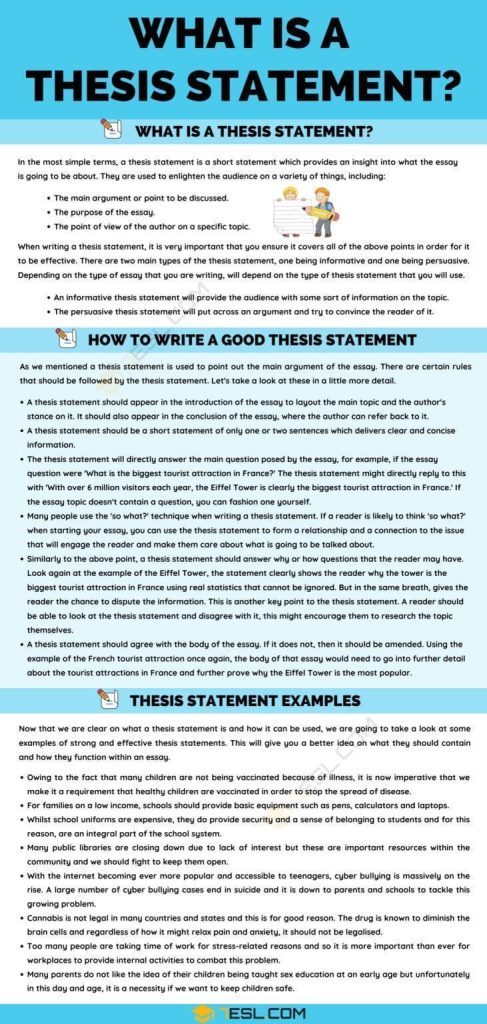Introduction
In an epoch defined by the relentless march of technology, the art of crafting compelling arguments is a potent force in shaping our digital narrative. Technology argumentative essays serve as dynamic canvases for researchers, enthusiasts, and thought leaders to sketch out ideas, challenge conventions, and contribute rich strokes to the broader conversation. This article explores the craft of fashioning impactful technology argumentative essays, delving into the nuances that render these essays not only intellectually stimulating but also transformative.

Table of Contents
Tips for writing technology argumentative essays
here are some of the tips for writing technology argumentative essay
1. Picking a Magnetic Topic: The heartbeat of a compelling technology argumentative essay lies in its topic. Choose subjects that not only pulse with contemporaneity but also ignite controversy or delve into uncharted territories. Whether probing the ethical labyrinth of AI or navigating the societal ripples of emerging technologies, the chosen topic should beckon readers into a realm of thoughtful exploration.
Sample Topic: “Drones in Urban Skies: A Technological Marvel or Ethical Quandary?”
2. Research Mastery: To fortify your arguments, embark on a journey of comprehensive research. Weave together a tapestry of reputable sources, studies, and expert opinions to breathe life into your claims. A well-researched essay not only lends weight to your arguments but also elevates you to the role of a guiding beacon in the technological discourse.
3. Forging a Clear Thesis: In the crucible of your essay, the thesis stands as the alloy of strength. Articulate your stance on the chosen topic with the precision of a master craftsperson. Let this statement be a guiding star, leading readers through the essay and illuminating the evidence and arguments that lie ahead.
Thesis Statement: “The ascent of drones in urban skies propels us into a technological frontier, yet raises ethical questions that demand our unwavering attention.”

4. Architecting Your Essay: Fashion your essay as an architectural marvel, with a compelling introduction, a body that resonates with evidence, and a conclusion that leaves an indelible imprint. Begin with an introduction that tantalizes, revealing the topic and unfurling your thesis. The body should be a symphony of arguments, each note harmonizing with evidence. Conclude by orchestrating a finale that echoes your main points and reinforces the urgency of your stance.
5. Confronting Counterarguments: Engage in a dance with counterarguments, acknowledging their presence and deftly countering with well-reasoned responses. In this nuanced choreography, your essay gains strength, demonstrating an intellectual agility that captivates readers.
6. Linguistic Alchemy: Wield the pen with the finesse of a linguistic alchemist. Employ language that not only communicates ideas but also weaves a spellbinding narrative. Eschew unnecessary jargon, ensuring that your arguments resonate with a diverse audience.
7. The Art of Refinement: Before unveiling your creation to the world, refine it with meticulous care. Polish away grammatical imperfections, align the stars of your ideas, and ensure a seamless flow. A refined essay is not just a written piece; it’s a work of art.
8. The Unveiling and Engagement: The purpose of a technology argumentative essay extends beyond the page. Unveil your creation on platforms that resonate with your audience. Engage with readers through comments, social media dialogues, and forums. Cultivate a community, sparking conversations that echo and reverberate.
Gathering Persuasive Evidence in Technology Argumentative Essays
Crafting a compelling argument in a technology argumentative essay requires a robust foundation of evidence and support. Here are effective ways to gather persuasive evidence for technology argumentative essay that strengthens your points:
1. Statistics: Illuminating Insights
- Utilize relevant statistics to fortify your claims. For instance, if your essay explores the influence of artificial intelligence on job markets, citing statistics on the rise of AI-driven industries or job displacement can add a quantitative dimension to your argument.
Example: “According to a recent study by [Author], the adoption of artificial intelligence is projected to contribute to a 20% increase in productivity across various industries by 2030.”
2. Expert Opinions: Wisdom from Authorities
- Harness the credibility of experts and scholars in the field to reinforce your arguments. Quoting renowned figures provides authority to your perspective. Seek out insights from technology experts, researchers, or influential voices in the relevant domain.
Example: “In the words of [Expert], a leading authority in technology ethics, ‘The integration of ethical considerations in artificial intelligence development is paramount to ensuring a responsible and sustainable technological future.'”
3. Anecdotes and Examples: Humanizing the Narrative
- Infuse your essay with real-life stories or examples that illustrate your points. Personal anecdotes or specific case studies make your technology argumentative essay argument relatable and resonate with readers on a human level.
Example: “Consider the case of [Individual], whose life was transformed by accessible healthcare apps. This anecdote exemplifies the positive impact of technology in democratizing healthcare access.”
4. Research Studies: Building a Solid Foundation
- Incorporate findings from reputable research studies to provide a robust foundation for your technology argumentative essay arguments. Peer-reviewed studies offer in-depth analysis and lend credibility to your claims.
Example: “A comprehensive study published in [Journal] corroborates the positive correlation between increased screen time in educational apps and enhanced cognitive development in children aged 3 to 6.”
25 technology argumentative essay topics
- The Impact of Artificial Intelligence on Employment
- Internet Privacy: Balancing Security and Individual Rights
- Are Social Media Platforms Doing Enough to Combat Fake News?
- The Role of Technology in Shaping Modern Education
- Cybersecurity: Protecting Against Online Threats
- The Pros and Cons of E-learning Platforms
- Should Governments Regulate the Use of Facial Recognition Technology?
- Digital Divide: Addressing Inequalities in Access to Technology
- Automation in the Workplace: Job Displacement vs. Efficiency
- The Ethics of Genetic Engineering and Cloning Technologies
- The Influence of Technology on Mental Health
- Autonomous Vehicles: Navigating the Road to the Future
- Cryptocurrencies: Revolutionizing the Financial Landscape
- The Impact of 5G Technology on Communication and Connectivity
- Biometric Technology: Enhancing or Compromising Security?
- The Role of Technology in Environmental Conservation
- Online Censorship: Balancing Freedom of Speech and Regulation
- Augmented Reality in Gaming and Beyond
- The Rise of Telemedicine: Pros and Cons
- The Ethical Implications of Big Data Collection
- Technology and its Influence on the Music Industry
- The Future of Space Exploration: Robotics and AI in Space
- Should Companies be Allowed to Use Targeted Advertising Based on User Data?
- The Ethical Considerations of CRISPR Gene Editing Technology
- Digital Currency: Challenges and Opportunities for Global Economies
Addressing Counterarguments: Navigating the Opposition
To fortify your argument, it’s imperative to acknowledge and counter opposing viewpoints. Anticipate what critics might assert and provide a compelling counterpoint. In the realm of technology, where debates are nuanced and varied, addressing counterarguments enhances the overall strength of your essay.
Example: While some argue that increased reliance on automation leads to job displacement, a closer examination reveals that automation often creates new job categories and allows humans to focus on tasks that require creativity and critical thinking.
In conclusion, gathering persuasive evidence involves a strategic combination of statistics, expert opinions, anecdotes, and research studies. These elements not only bolster your arguments but also contribute to a well-rounded and impactful technology argumentative essay. Additionally, addressing counterarguments with thoughtful rebuttals adds layers of depth and nuance to your Post-Writing Guidelines for Polishing Your Technology Argumentative Essay
Completing the final sentence of your technology argumentative essay doesn’t mark the end of your task. A crucial step follows: proofreading, revising, and refining the essay to address grammar, punctuation, and stylistic errors. Additionally, ensuring the credibility of your sources and adherence to the appropriate citation style is paramount.
Several key aspects merit consideration during the proofreading phase of your technology argumentative essay.
Firstly, assess the reasonableness of your position on the topic. Since the goal of this academic writing is to articulate your viewpoint supported by evidence, verify that your essay transcends the mere presentation of facts. Delve into the structural components of your paper, ensuring that the introduction provides ample background information and a clear thesis statement; the body paragraphs feature topic sentences, relevant arguments, and a robust refutation section; and the conclusion succinctly summarizes your argumentative paper while reiterating the thesis from the introduction. The structure of your essay is integral, requiring meticulous alignment with the specified requirements.
Evaluate the effectiveness of your use of logos, pathos, and ethos.
The most compelling argumentative essays seamlessly integrate logical reasoning, emotional appeal, and ethical considerations. Your paper should embody these elements not only to secure a high grade but to garner the appreciation of your readers. Consequently, these post-writing tips serve as a valuable toolkit for elevating the quality of your technology argumentative essay. Implementing these recommendations will not only enhance your writing skills but also leave a lasting impression on your readers.
Conclusion
In conclusion, crafting a compelling technology argumentative essay is an art form that marries research, critical thinking, and expressive communication. By selecting topics that pulsate with relevance, conducting exhaustive research, and weaving together well-structured arguments, you contribute not just to the ongoing dialogue but to a transformative discourse in the realm of technology. These essays are more than intellectual expressions; they are catalysts for change, propelling us toward a future defined by innovative discourse and positive technological metamorphosis. As we traverse the landscape of technological marvels, each argumentative essay becomes a guiding star, navigating us toward a future shaped by intellectual vigor and a profound transformation in the technological panorama.
Frequently Asked Questions
1. What makes a technology argumentative essay different from other types of essays?
A technology argumentative essay is distinct in that it requires the writer to present a clear perspective on a technological issue, supported by evidence and a persuasive argument.
2. How do I choose a compelling topic for a technology argumentative essay?
Selecting a compelling topic involves considering current technological issues, controversies, or advancements. It should be a subject that allows for in-depth exploration and argumentation.
3. Can I use personal opinions in a technology argumentative essay?
While personal opinions are important, they should be backed by evidence and logical reasoning. The focus is on presenting a well-supported argument rather than expressing subjective views.
4. How do I find credible sources for my technology argumentative essay?
Reliable sources can be found in academic journals, technology-focused publications, and reputable websites. It’s essential to verify the credibility of sources to strengthen your arguments.

